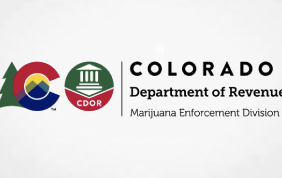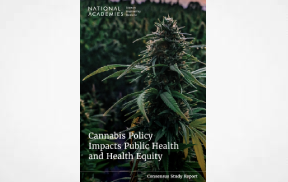We have reviewed articles in several publications that describe the Ninth Circuit’s affirmation of Decisions of the United States Tax Court rejecting as untimely filed the Petitions of Organic Cannabis Foundation (“OCF”) and Northern California Small Business Assistants (“NCSBA”).
These two petitions attempted to contest the application of Internal Revenue Code (“IRC”) §280E to the respective 2010 and 2011 income tax returns of OCF and NCSBA.
The most informative article we have reviewed is “Court Update: Day Late and a (Million) Dollar(s) Short” by Jonathan Kalinski.
Jonathan Kalinski’s article is written for tax lawyers and accountants. For that reason it is not surprising this article is informative.
All of the articles on these two cases in the various publications that cater to the cannabis industry that we have reviewed miss are flawed to a greater or lesser degree. This is frequently the case for articles appearing in cannabis industry publications relating to business and tax law. The authors of such articles far too frequently have an inadequate understanding of the legal and business context in which events transpire such as those involved in these two cases. More simply stated, all too frequently the authors of articles written for cannabis industry do not fully understand whereof they write.
A taxpayer petitions the Tax Court for a redetermination of an asserted income tax liability because this court offers a taxpayer an opportunity to contest an income tax deficiency without the necessity of first paying the deficiency. The rejection of the petitions of OCF and NCSBA by the Tax Court as untimely is a procedural decision. The rejection of these petitions was not a substantive decision on the merits of the claims of OCF and NCSBA. The Ninth Circuit’s affirmation of the rejection of the petitions of OCF and NCSBA is merely an affirmation of the Tax Court’s procedural decision
The claims of OCF and NCSBA relating to the deficiencies in income tax asserted against them by the Internal Revenue Service (“IRS”) did not reach either the Tax Court or the Ninth Circuit on the merits of the taxpayers’ positions. OCF and NCSBA have not lost the opportunity to contest the income tax deficiencies asserted against them by the IRS. OCF and NCSBA can still pursue their respective contentions that Internal Revenue Code (“IRC”) §280E was erroneously applied to disallow deductions for ordinary and necessary business expenses they claimed in their returns.
There is a silver lining for OCF and NCSBA in the Ninth Circuit’s decision, although it is not obvious. As is noted above, the filing of a timely petition to the Tax Court is jurisdictional. If a petition to the Tax Court is not timely filed, the Tax Court does not acquire jurisdiction. The failure to file a timely is fatal to a pre-payment determination relating to an assertion of a deficiency in income tax by the IRS. The failure of the taxpayer to file a timely petition is not fatal to the taxpayer’s claim the asserted income tax liability is not owed. However, this is not the silver lining.
As both the Ninth Circuit and Jonathan Kalinski carefully explain, the petitions of OCF and NCSBA were rejected by the Tax Court based on a very technical deficiency in the taxpayers’ compliance with the necessity of a timely filed petition. A petition to the Tax Court must be filed within 90 days of the date of the Statutory Notice of Deficiency for the Tax Court to acquire jurisdiction to redetermine a deficiency asserted by the IRS.
OCF and NCSBA were caught in technical rules relating to the use of a private mailing service to file a Tax Court petition. That OCF and NCSBA were caught up in technical rules relating to filing of Tax Court petitions is neither the reason for the title to this article nor the silver lining for OCF and NCSBA. These two items are, however, related. We will briefly discuss both.
Most filing deadlines are not jurisdictional. In most, but not all, instances relief from a missed deadline will be available. In most instances there is an opportunity to pay a late fee, or claim reason cause, or assert excusable neglect, etc., in order to secure relief from a missed deadline. It is only when legal rights are irretrievably lost, when the deadline is jurisdictional, that a missed deadline is fatal.
The reference to a rookie mistake in the title to this article is not a reference to the missing of a deadline. The reference to a rookie mistake is a reference to the lack of prudence in waiting until the last day to file anything when the failure to timely file will be fatal. In all circumstances in which the timeliness of filing is required to preserve a legal right, prudence requires planning for filing before the deadline. Only when circumstances arise that do not allow an early filing should any such a filing be on the last day for filing. The rookie mistake, if there was a rookie mistake, was in not planning on filing these two petitions significantly before the last day.
Where then is the silver lining for OCF and NCSBA? If OCF and NCSBA lost only the opportunity for a pre-payment determination the IRS has erroneously asserted deficiencies and they can still assert the IRS is wrong, the rookie mistake may be wholly excusable because OCF and NCSBA can still fight the substantive issue. Where is the silver lining? The silver lining lies in the fact OCF and NCSBA have little chance of prevailing on their substantive claims the IRS is wrong. Both the Tax Court and the Ninth Circuit have decided the substantive issues OCF and NCSBA are asserting against taxpayers in multiple cases.
The IRS is usually correct when it asserts a deficiency in income tax against a taxpayer. Attorneys representing taxpayers in income tax matters who do not prevail for their clients can rarely be found to have erred because the IRS usually is substantially, or at least partially, correct in its position. It is only in those instances in which a taxpayer is denied an opportunity to contest an income tax liability that the situation looks far brighter for the taxpayer.
OCF and NCSBA have little, if any, likelihood of prevailing on the merits of their substantive claims relating to IRC §280E. However, both OCF and NCSBA were denied the opportunity to present their claims to the Tax Court because their petitions were not timely filed. We suggest OCF and NCSBA have their best opportunities to find a silver lining in the morass in which they find themselves by consulting with a plaintiff’s malpractice law firm.



















